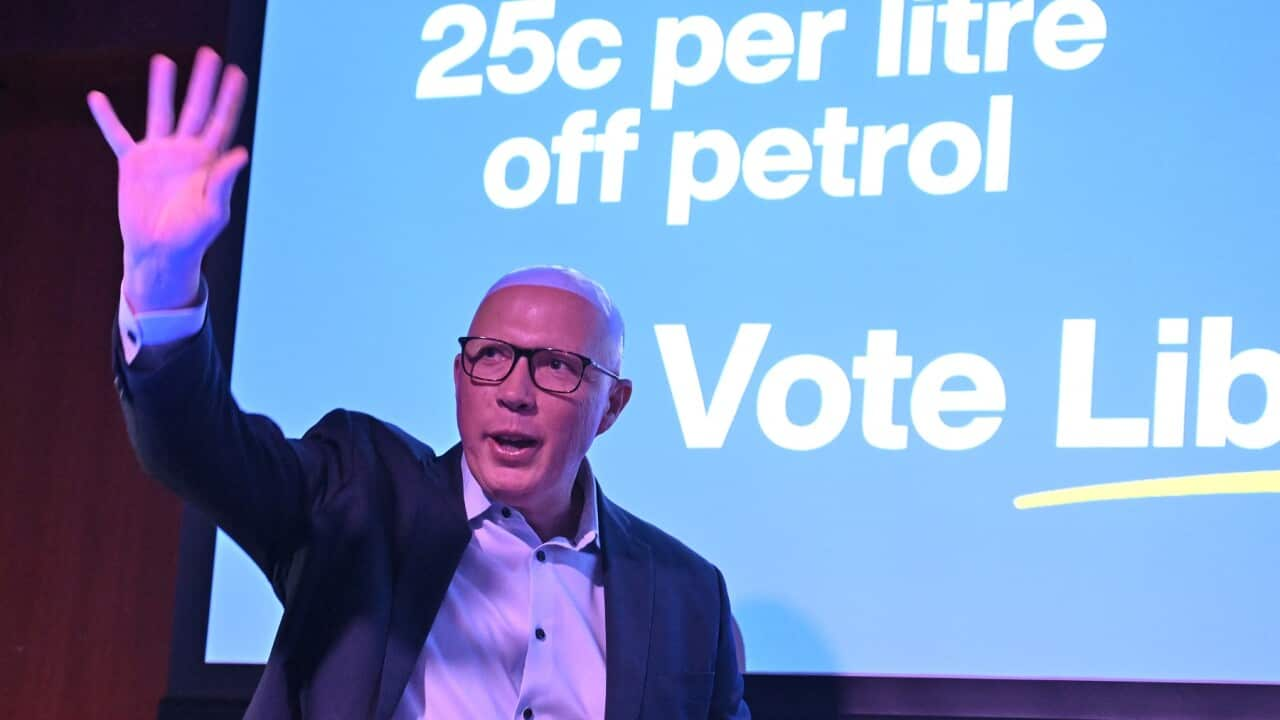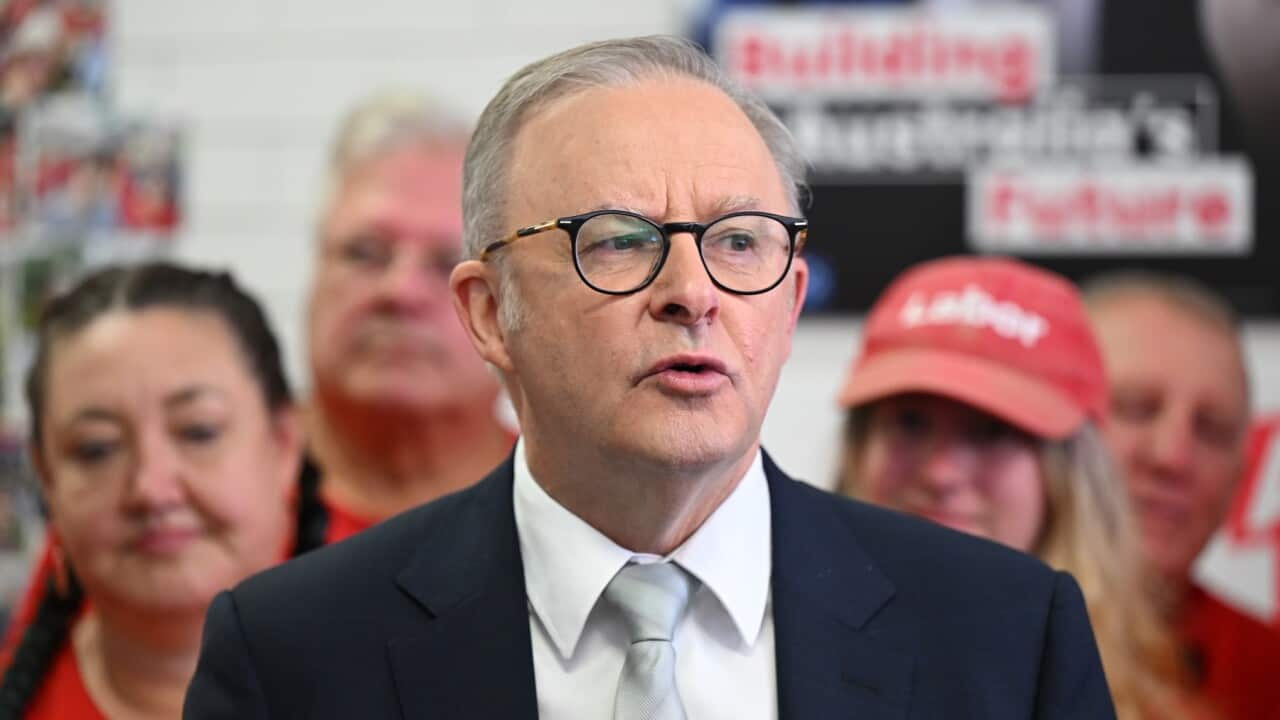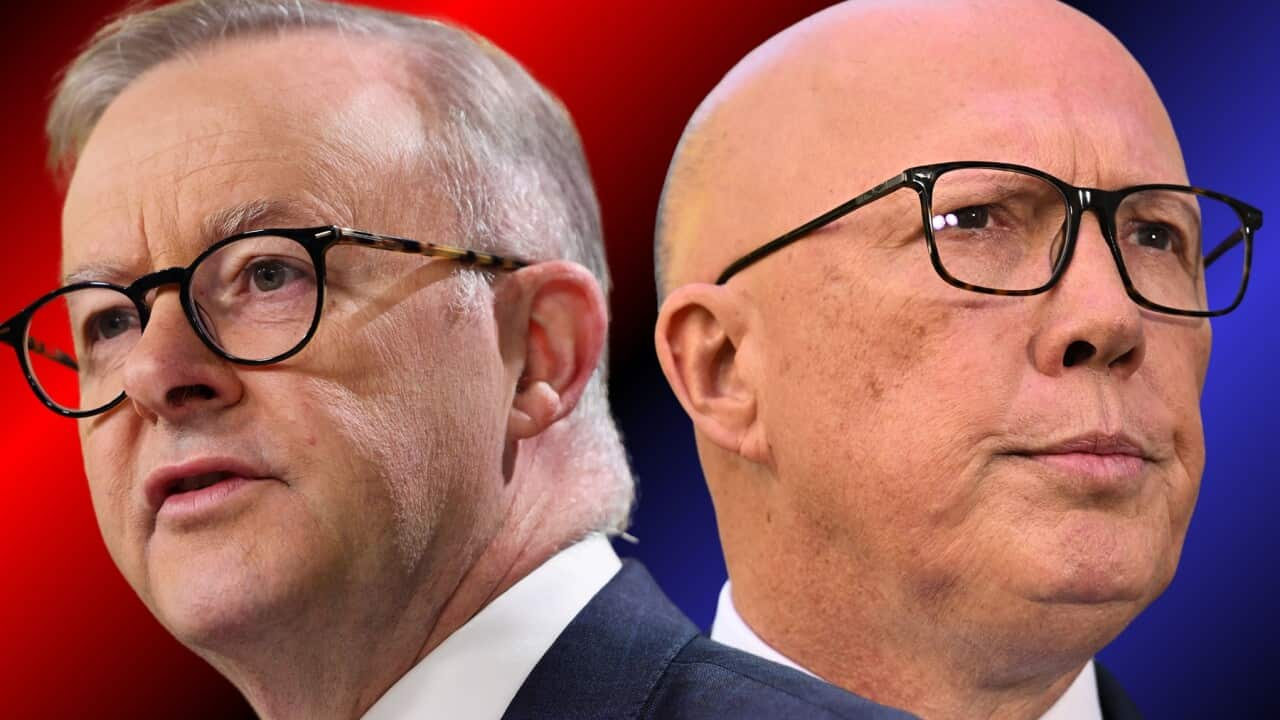TRANSCRIPT
A significant investment in women's health has felt long overdue for millions of Australian women who have reported experiences of being dismissed and disbelieved in our health system.
The Labor government announced a $793 million women's health investment in the pre-election budget, expanding on their earlier $573 milion announcement in February - which the Coalition pledged to match.
But who is missing out from this multi-million dollar funding?
Many of the reforms and investments apply to those with access to Medicare... but hundreds of thousands of people on temporary visas do not have access to these benefits, as they are often tied to work and study rights.
Jana Favero is Deputy Chief Executive at the Asylum Seeker Resource Centre, and says failure to access these rights has dire consequences.
"People seeking asylum in our community are forced into poverty and destitution and poor health because of policy decisions such as a decision for people not to have right to study, not to have right to work, which also is linked to meaning they won't have Medicare, but what a lot of people probably don't realise as well, they don't have the right to study or right to work in Medicare. They also can't access Centrelink benefits. So effectively they are left and totally abandoned and forced into being some of the most marginalised people in our community, not for any act of their own, but because of government choices to deny them the ability to access appropriate, affordable healthcare, and also even to be able to sustain themselves through right to work through studying or even through access to Centrelink."
The Asylum Seeker Resource Centre estimates there are currently around 100,000 people seeking asylum in Australia - one-third of whom do not have access to Medicare.
Many of the benefits in the government's multi-million dollar women's health initiative include listing new medications, including contraceptives and endometriosis treatments on the Pharmaceutical Benefits Scheme, meaning only those with access to Medicare will benefit from cheaper medicine.
The investment also includes bigger rebates for complex health appointments and procedures, including relating to menopause and the insertion and removal of contraceptive I-U-Ds - this again only applies to those with a Medicare card.
For asylum seekers already confronting enormous financial and cultural barriers, women and trans people with complex health needs are often forced to make difficult sacrifices around health care.
Ms Favero says the Asylum Seeker Resource centre's health service spends around $14,000 a month on pharmaceutical medications, such as asthma pumps or cancer treatment, that asylum seekers cannot afford without access to the Pharmaceutical Benefits Scheme.
"In particular with the Women's Health Initiative, we are talking about people seeking asylum who are women who are often women of color, who already have so many barriers in the system stacked against them. And this is another area where they're not able to access the services they need, the basic services that people should be able to access just to be able to live and sustain daily life. It's a whole reason ASRCs Health Clinic exists. We also have a specialised women's health clinic for such this reason because there are instances where women's health or trans health present additional complex health needs. If you don't have access to Medicare, you can't access that specialised medical care that you need, and therefore they're relying on charities such as ASRC to be able to provide that care."
International students in Australia confront similar barriers.
There were more than 850,000 international students studying in Australia in 2024 according to the Department of Education - the majority do not have access to Medicare and are required to sign up for Overseas Student Health Cover, or OSHC.
Wen Li has been an international student in Australia since December 2021, and is currently completing her PhD remotely from China.
She co-authored a report at the University of Queensland, looking into the experiences of Chinese international students accessing Australia's health care system - research inspired by her own barriers to accessing health care, encountering financial obstacles and limited information.
"When I first arrived in Australia, I found some inconveniences to the healthcare access and especially during my international studying period because at that time there was a covid and there was many negative reports from various media. So I think including me, many of my international friends had the same feeling of anxiety."
The research involved interviews with 25 Chinese international students in Australia, and the key barriers were categorised at the individual, institutional and policy level.
At the individual level, Ms Li describes students encountering language and cultural barriers which deterred them from seeing a doctor, while on the institutional level barriers are mainly related to costs of appointments, procedures and transportation.
On the policy level, students describe difficulty around the insurance cover and reimbursement system.
Ms Li says the financial pressures resulting from this insurance are a key factor in reluctance for international students to access appropriate health care, as they must wait for reimbursement after first paying for procedures or consultations.
"I am also kind of concerned about the costs that would be required for the process because I don't have much knowledge about the average cost for different treatments or consultations. But according to some of my friends, some costs could be incredibly high."
In their research, Ms Li says they encountered more women than men expressing a desire for psychological or psychiatric care - which is not covered by the overseas student health cover.
She would like to see this change.
"I think more women students expressed a need for the psychological sessions. That is based on our interviews and also for myself, I think this is a very important service if that can be included in the insurance. Many women, student international students can be benefited from that."
As well as failing to cover psychological care, there is a 12 month waiting period before the insurance covers pregnancy related care.
Adele Murdolo is chief executive of the Multicultural Centre for Women's Health and points to the example of abortion care - explaining how for international students without cover during this waiting period, the costs of an abortion can be as high as $1200.
This is in contrast to those with Medicare who can receive a free abortion at a public hospital or pay a few hundred dollars at a private clinic.
"So it's a significant outlay, especially for a group that is already experiencing financial disadvantage vantage to be able to afford that. But the logical conclusion of restricting access to abortion are those two options where people seek perhaps medical abortion. Without that support of health professionals, they get perhaps medication from overseas or they just find another way. We know that in countries where abortion is restricted, the abortion rate doesn't go down. It's not that women have fewer abortions, it's just that they find other ways to get them. So they might have to travel further. They might have to, I guess, just find it in ways that's much more difficult to access."
But it's not just the financial strain.
A lack of awareness and information means people on temporary visas often fail to receive the care they are legally entitled to - as Ms Favero explains.
"Quite often people seeking asylum will present in hospital. The hospital isn't aware that people seeking asylum can access it for free. And then they sent a bill and we've seen people with bills for thousands or tens of thousands of dollars, which we've then had to spend a lot of time and education. We actually have a dedicated person in our health team whose whole focus is on advocating for bill waiver people seeking asylum. So while it's great that that is extended to other states, because not a lot of people know about it, it means that people are then receiving bills and are stressed or are too afraid to even present a hospital because they don't know they'll be seen for free in emergency situations."
Ms Murdolo says her organisation celebrates the government's $793 million investment in women's health, particularly noting the government's commitment to continue funding their Health In My Language program for another year - which provides in-language information on health for culturally and linguistically diverse people.
But she says too often women sacrifice their health care due to financial and cultural barriers.
She would like to see a newly elected government investigate the current visa system which excludes health care.
"We have had in the past a health system that doesn't discriminate on the basis of visa category. All of those types of healthcare, which is more at that preventative and early intervention end, save us money at the other end. So I'd really like to see a government putting some really kind of thorough investigation into separating out healthcare from visas."
One step further, Ms Favero would like to see the next government guarantee Medicare for all people residing in Australia.
"So absolutely so many announcements during the election campaign and beforehand. We even saw budget announcements a couple of months ago, and again and again, people seeking asylum are locked out of it because of their visa status, and they're not eligible for many of the services. Where there is increased investment, it is around that access to a safe net around being able to have access to study rights and work rights, because that is what enables access to Medicare and unlocks all of those other benefits that come with being able to access Medicare when you're living in the Australian community."
Ms Li would also like to see international students be able to access Medicare, but also calls for more culturally safe health care.
"Especially for international students from non-English speaking countries, the cultural and linguistic barriers can be huge. The terms used to describe the symptoms, disease and drugs are somehow different from the daily language. They're used to a culture of having company for the medical visits. If the education institutions could provide some volunteers to accompany for some international students from this cultures, that'll be very helpful for those students, I think."
The government and Coalition were contacted for comment.













